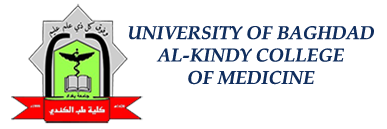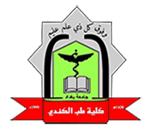Alkindy College of Medicine, with support of Dean, Professor Dr. Mohammed Shahab Al-Idani, organized a thought-provoking scientific lecture titled “Human Embryo Transplantation: Clinical Observations.” This event was a part of the Continuing Education Unit’s ongoing activities.
The lecture was expertly delivered by Dr. Mohammed Imad and attended by distinguished individuals, including the Vice Dean for Scientific Affairs, Dr. Taghreed Al-Haidari, and the Vice Dean for Administrative Affairs, Dr. Jameela Ghadban. The session was skillfully chaired by Dr. Saad Ali Rashid, and the Director of the Continuing Education Unit, Dr. Haider Hashem, ensured its smooth execution.
The lecture’s primary objective was to refresh our understanding and retrieve vital information related to human embryo transplantation within the uterus. It also aimed to establish connections between fundamental knowledge and the clinical symptoms and diseases associated with this intricate procedure.
Dr. Mohammed Imad delved into a comprehensive explanation of the human amniotic sac, the transplantation process, and how it becomes embedded in the uterine lining at the precise anatomical location. He meticulously illustrated how to differentiate the clinical symptoms of this procedure from those of the menstrual cycle.
Furthermore, Dr. Mohammed Imad offered insights into the intricate immune processes governing the placental nourishing cells, fetal tissues, and the mother’s immune system. He clarified how these processes do not harm fetal cells and tissues during pregnancy.
These activities play a pivotal role in advancing and enriching knowledge within the complex medical domain. They encourage collaboration and information sharing among educators and specialists in this field. Additionally, they underscore the importance of maintaining good health and preventing potential complications associated with these procedures by emphasizing the safety of medical practices and adherence to the correct clinical guidelines.
Ultimately, these efforts contribute to the realization of comprehensive and high-quality healthcare standards.
















